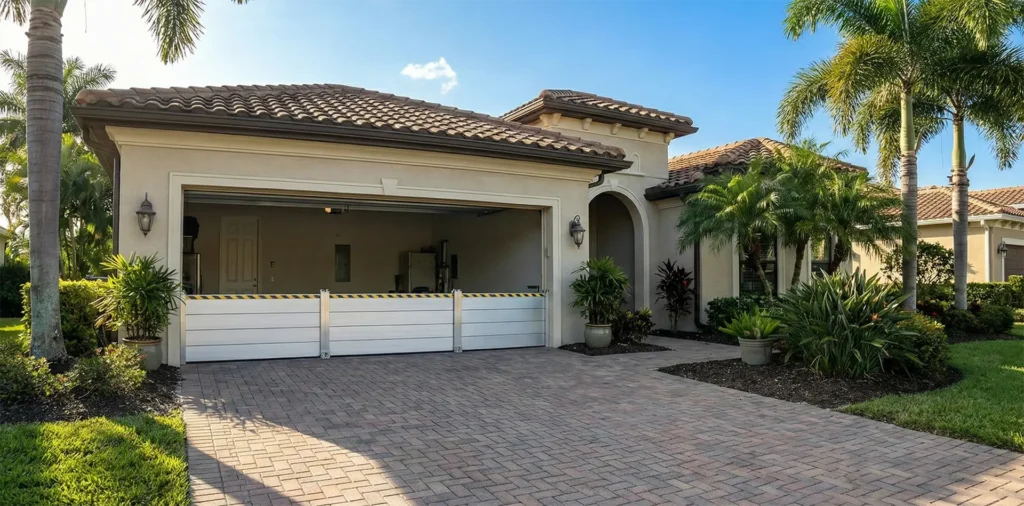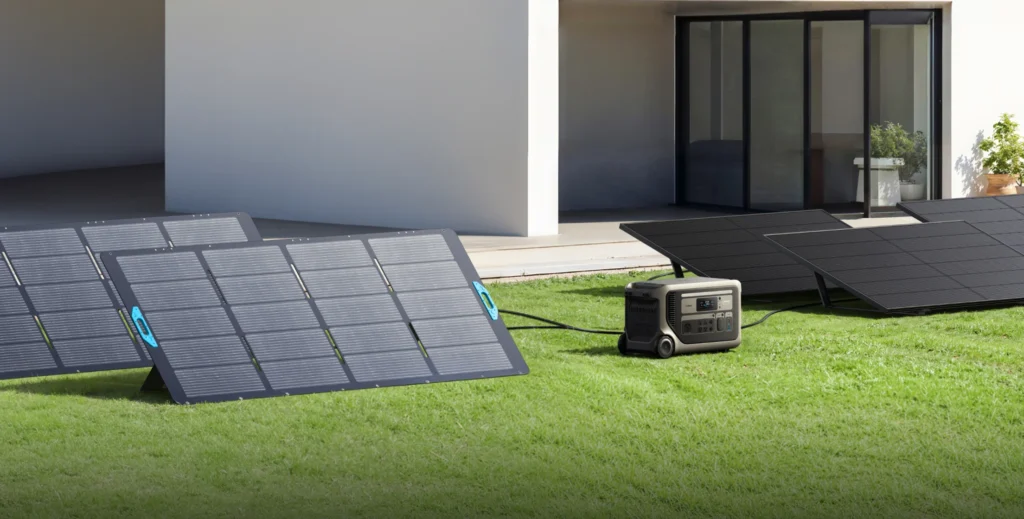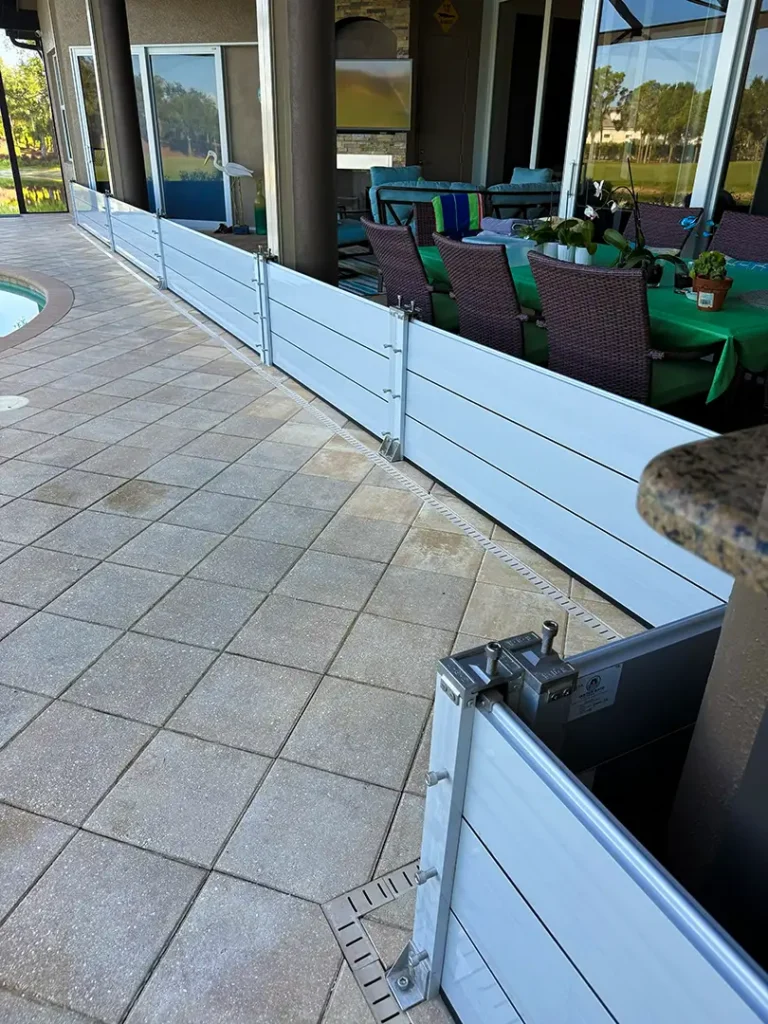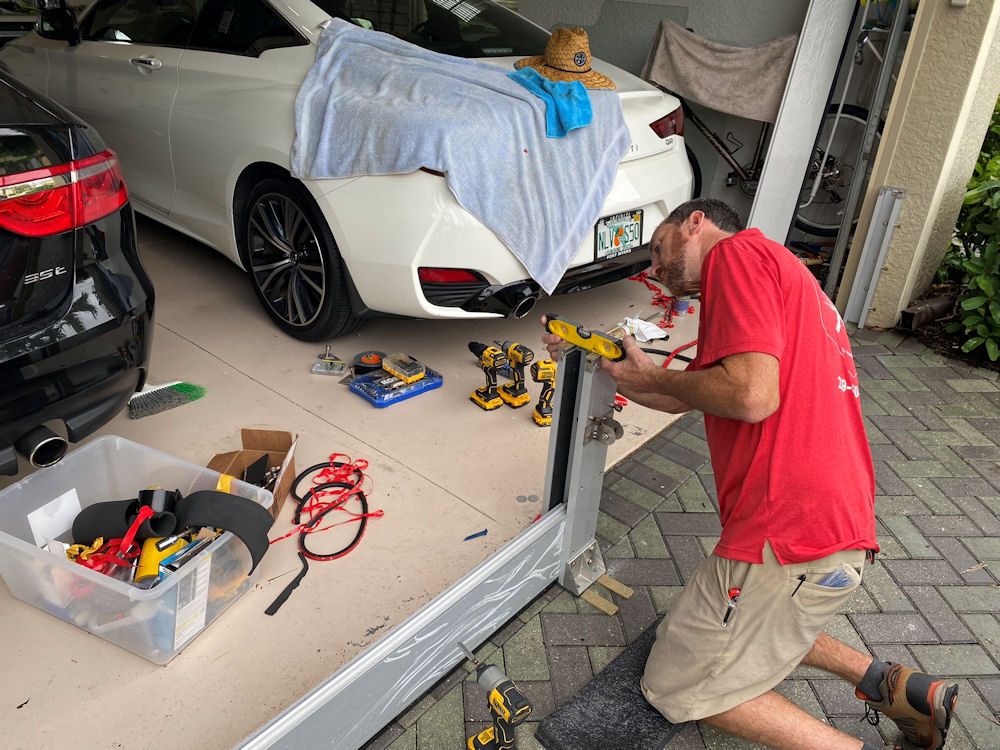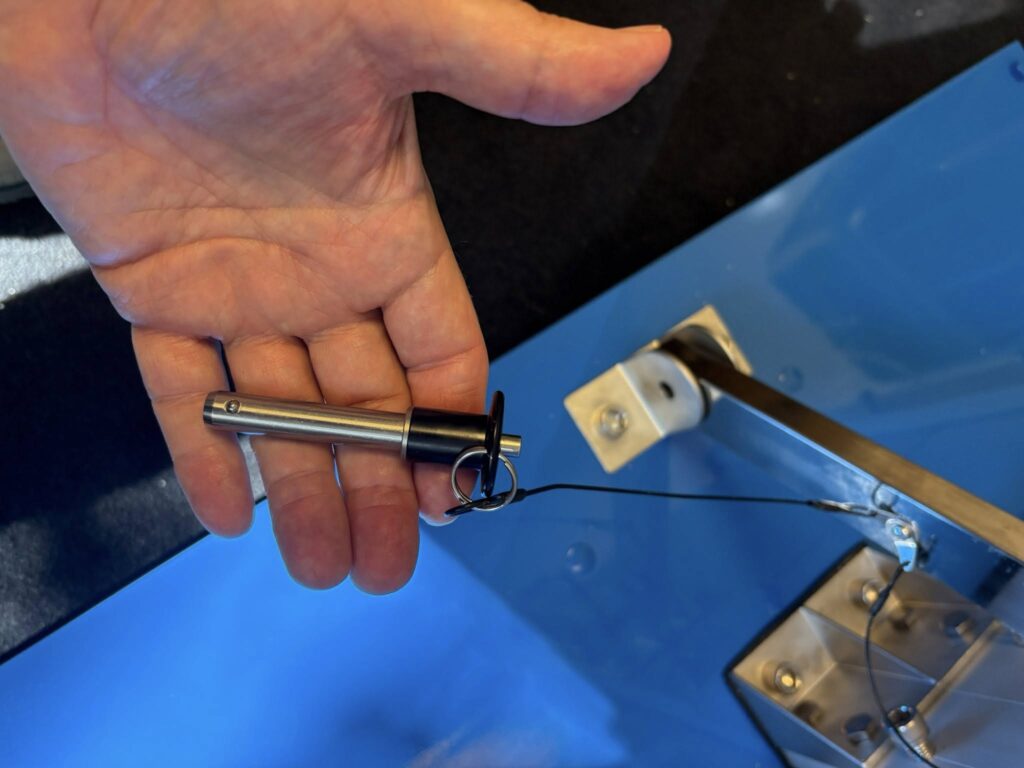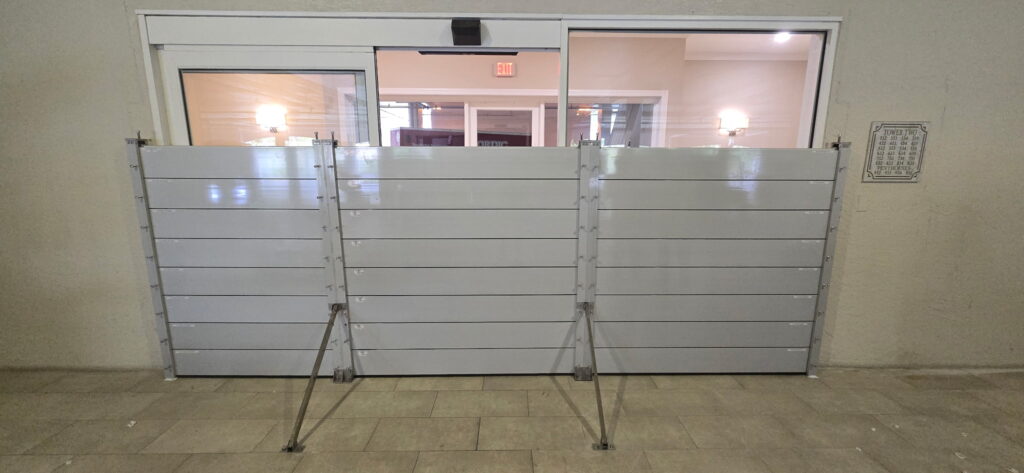With the aluminum post and panel Flood/Surge barrier market exploding with vendors making all kinds of promises, how can you best educate yourself on what systems are the strongest (there are differences despite looking similar), use the best materials, and stand behind their warranty claims?
Let’s start with “Made in USA.”
If you’re a veteran like me, it probably means a little more. In the end, if not true, the claim preys on the sensibilities of many Americans. And that’s wrong.
For consumers, “Made in America” implies a higher level of quality, safety, and ethical production due to stringent U.S. labor and manufacturing standards. It also suggests support for the U.S. economy and jobs, a sense of national pride, and potentially more sustainable products due to stricter environmental regulations.
The Impact of Raw Materials
The “Made in the USA” claim also has an impact on supply chain resiliency, especially if the raw materials are being sourced from China.
China’s manufacturing industry has been government subsidized for years, resulting in artificially low raw materials costs. But this also nullifies any possible claim by any vendor as to the “made in the USA” claim.
Note: Water Gate Systems gets its raw materials from China. So does everyone else.
I’ve seen the “proudly made in USA” claim on multiple vendor websites for Flood/Surge Barrier systems. I’m sorry to report you can’t believe everything you see (or read) on the internet.
Glossary of Aluminum Extrusion Definitions
Let me offer a brief glossary in aluminum extrusion definitions:
| Term | Contextual Definition |
| Manufacturing | The broad process of making the finished aluminum flood barrier product, encompassing all stages from raw material sourcing to final assembly. |
| Fabrication | A stage of manufacturing that involves converting aluminum material into parts or components, such as cutting, forming, and welding the panels or posts. |
| Extrusion | A specific process where raw aluminum material is forced through a shaped die to create long, uniform profiles—the core shape of the panels and posts used in the flood barrier system. |
| Assembly | The final stage of production where the finished components (like extruded panels, gaskets, and hardware) are put together to create the complete, ready-to-install flood barrier system. |
| Chemistry, Mechanical Property Testing | Testing performed on the aluminum to ensure its chemical composition and physical properties (like strength and durability) meet the required standards for a flood barrier. |
| Electrical Conductivity Testing | A test to measure how well the aluminum conducts electricity, which is an indicator of the material’s purity and temper, and is relevant for quality control. |
| Macroanalysis, Microanalysis | Methods for examining the aluminum material at different scales—macroanalysis for visible features and microanalysis for fine structural details—to check for defects and integrity. |
| Rockwell Hardness Test | A common method to measure the hardness of the aluminum by measuring the depth of penetration of an indenter under a large load. |
| Brinell Hardness Test | A method to measure the hardness of the aluminum by applying a specific load to a hard ball and measuring the diameter of the resulting indentation. |
| Webster Hardness Test | A quick, portable test often used on aluminum extrusions to determine their hardness in a non-destructive manner. |
| Exfoliation Corrosion Test | A test to determine the aluminum material’s resistance to a specific type of corrosion that proceeds parallel to the surface, potentially causing layers to flake off, which is critical for long-term barrier performance. |
The FTC Standard: “All or Virtually All”
There are actually several legal definitions depending on the context, but the main one comes from the Federal Trade Commission (FTC).
For an unqualified “Made in USA” or “Made in America” claim, the FTC requires that the product be “all or virtually all” made in the United States.
This means:
- Final assembly or processing must take place in the U.S.
- All significant parts and processing that go into the product must be of U.S. origin.
- The product should contain no or negligible foreign content.
The FTC doesn’t set a specific percentage threshold. Instead, they evaluate each case based on factors like:
- Portion of total manufacturing costs from U.S. parts and processing
- How far removed any foreign content is from the finished product
- The importance of the foreign content to the overall function
Qualified Claims and Other Standards
Qualified Claims Are Allowed
Companies can make qualified claims like “Made in USA of U.S. and imported parts” or “Assembled in USA” if they are truthful and clear about the extent of foreign content.
Other Standards Exist
- Buy American Act: For government procurement, has different thresholds (often 55% domestic content).
- Customs regulations: Have their own “country of origin” rules for imports.
- Berry Amendment: Requires 100% U.S. content for certain military textiles and food.
- Specific industries: Automobiles, textiles, and wool products have additional labeling requirements.
Water Gate Systems Transparency
In the spirit of full transparency, Water Gate Systems, LLC is unable to claim “Made in America” or “Made in the USA”. The FTC can pursue companies for deceptive “Made in USA” claims, resulting in fines, corrective advertising, or other penalties.
If this claim is important to you:
- Ask where their aluminum panels are fabricated.
- What is assembly vs fabrication?
- Who is the sanctioning US body that has certified their American made posts and panels?
- Where do their gaskets and hardware come from?
Bottom Line: We aspire to be transparent about all aspects of our business. This results in balance, fairness, integrity, and trust. If a vendor is outright lying about the source of their materials, then they’ll obfuscate the truth about anything else.
Be informed about the quality and integrity of your chosen flood barrier company. It’s a sign of how they will take care of you and your property well into the future.
Kenny Roy, CEO Water Gate Systems


